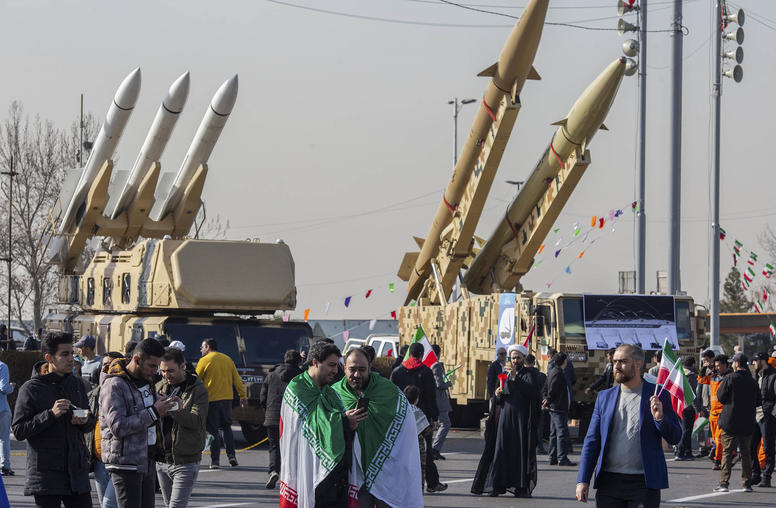Boustany Calls for Clear U.S. Strategy on Lebanon
Rep. Charles W. Boustany, Jr. said the U.S. government should develop “a clear, coherent strategy with Lebanon” during an event at the United States Institute of Peace on May 10.
May 11, 2011
The U.S. government should develop “a clear, coherent strategy with Lebanon,” Rep. Charles W. Boustany, Jr., told an audience at the United States Institute of Peace (USIP) in Washington on May 10.
Noting Lebanon’s political fragility and “complex environment,” Boustany said, “I’m not sure we have a clear strategic imperative that’s been defined,” Boustany is a Republican who has represented the seventh congressional district of Louisiana since 2005. He chairs the Subcommittee on Oversight of the House Ways and Means Committee and has been active on foreign policy issues. He was speaking in the fourth of an ongoing USIP series of meetings featuring members of Congress. Boustany called USIP’s work “invaluable” to Congress.
Boustany has had a longstanding interest in U.S. relations with Lebanon, both from a foreign policy and personal perspective. Boustany is Lebanese-American and has traveled to Lebanon twice since becoming a member of Congress. “Lebanon has been our most accessible window into what’s going on throughout the greater Middle East”—useful in helping the United States understand the forces in play in the region. He has also been an active member of the House Democracy Partnership, which arranges exchanges with lawmakers in 14 countries, including Lebanon, to develop more effective, democratic parliamentarians.
Boustany suggested principles for guiding thinking on a U.S. strategy. He urged looking at the specific circumstances of each country individually. He said the U.S. government is better positioned when it has developed a military-to-military relationship with particular countries and when it has opened lines of communication with the political opposition. And he said that development of a strategy should focus on identifying U.S. interests and priorities for each country, then seek to connect that to a wider regional approach.
The congressman cited factors that are buffeting Lebanon’s stability, including the political arrangements in the current, Syrian-backed governing coalition, political violence in Syria, the roles of Hezbollah and radicals in Palestinian refugee camps and the continuing work of a United Nations special tribunal investigating responsibility for the assassination of then Prime Minister Rafik Hariri and 21 others in a 2005 bombing. Boustany also pointed to the Iranian factor in Lebanese politics. “Lebanon has been the focal point for the consolidation of the Syrian-Iranian alliance,” along with its Lebanese partner Hezbollah, he said. Among the aims of U.S. strategy, Boustany said, should be “rolling back the power of Hezbollah.”
Boustany called for continuing the Foreign Military Financing (FMF) program with Lebanon, which since 2005 has helped that country purchase defense equipment and aims to help build the Lebanese Armed Forces (LAF) into the country’s “dominant military force.” He said the LAF had stayed “relatively free of sectarianism,” and that the FMF program should be monitored and supported with increased efforts to promote the professional education of Lebanese military officers under the International Military Education and Training program. U.S. strategy on Lebanon should include “benchmarks” for “stepped-up coordination” among the LAF, U.N. peacekeeping forces and Israeli defense forces—especially as the LAF expands its deployment in the south. The United States could also provide help the LAF with creating a plan to disarm Palestinian camps and to improve Lebanese inter-agency cooperation on seaport and airport security.
Hezbollah, which functions both as a political party and an armed militia, “has global financial and criminal networks” that “pose a direct threat to U.S. national interests,” and it threatens Israel as well, Boustany said. However, he added, “More controversially, whether we should establish some form of back-channel communication with Hezbollah is something that needs to be considered.” He indicated that such an effort could probe the intentions of the group, including about its relationship with its patron Iran. Lebanese American Shiites and European intermediaries could prove helpful in understanding Hezbollah’s aims as well, he said. Boustany said that he had “no illusions” about such efforts but added, “We would be foolish not to investigate all channels.”
U.S. trade ties with Lebanon should also be strengthened and trade policy aligned more closely with U.S. foreign policy objectives in the country, Boustany said.



